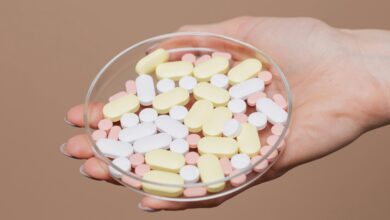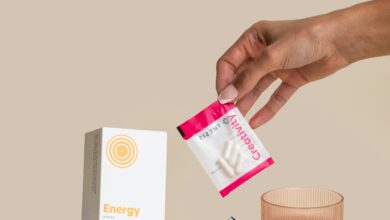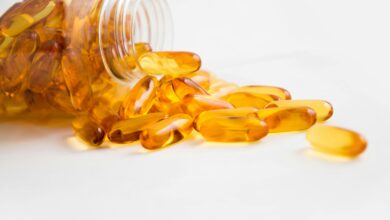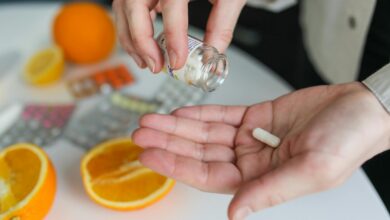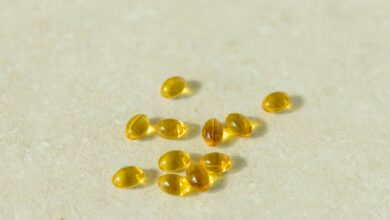The Best Supplements for Boosting Energy: A Comprehensive Guide
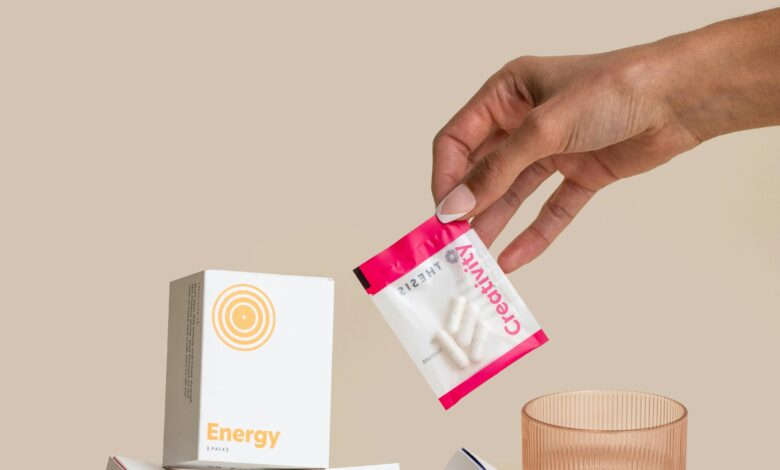
In today’s fast-paced world, many people struggle with fatigue and low energy levels. While a balanced diet, regular exercise, and adequate sleep are the cornerstones of sustained energy, certain supplements can provide an extra boost when needed. Whether you’re dealing with occasional tiredness or chronic fatigue, understanding which supplements work best—and how they function—can help you make informed choices. In this article, we’ll explore the most effective energy-boosting supplements, their benefits, and important considerations.
Why Do We Feel Fatigued?
Before diving into supplements, it’s essential to understand common causes of fatigue:
- Nutrient Deficiencies : Lack of key vitamins and minerals like iron, vitamin D, or B vitamins can lead to low energy.
- Poor Sleep Quality : Insufficient or disrupted sleep leaves you feeling drained.
- Stress and Overwork : Chronic stress depletes energy reserves and disrupts hormonal balance.
- Underlying Health Conditions : Issues like hypothyroidism, anemia, or diabetes can contribute to persistent fatigue.
- Dehydration : Even mild dehydration can cause sluggishness and reduced focus.
While supplements can help address some of these issues, it’s important to consult a healthcare provider if fatigue persists, as it may indicate an underlying medical condition.
Top Supplements for Boosting Energy
1. B Vitamins (B6, B12, Folate)
How They Work
B vitamins play a crucial role in converting food into energy by supporting cellular metabolism. Specifically:
- Vitamin B6 : Helps produce neurotransmitters that regulate mood and energy.
- Vitamin B12 : Essential for red blood cell formation and oxygen transport.
- Folate (B9) : Supports DNA synthesis and repair.
Who Benefits Most
- Individuals with vegetarian or vegan diets (B12 is primarily found in animal products).
- Those experiencing fatigue due to anemia or poor nutrient absorption.
Dosage Recommendations
- Follow the Recommended Dietary Allowance (RDA): 2.4 mcg/day for B12, 1.3–1.7 mg/day for B6, and 400 mcg/day for folate.
Food Sources
- Eggs, dairy, fish, leafy greens, legumes, and fortified cereals.
2. Iron
How It Works
Iron is critical for producing hemoglobin, the protein in red blood cells that carries oxygen throughout the body. Low iron levels can lead to anemia, causing extreme fatigue.
Who Benefits Most
- Women with heavy menstrual cycles.
- Pregnant women.
- Vegetarians and vegans who may not get enough dietary iron.
Dosage Recommendations
- Men: 8 mg/day; Women (ages 19–50): 18 mg/day; Pregnant women: 27 mg/day.
- Avoid excessive intake, as too much iron can be toxic.
Food Sources
- Red meat, poultry, spinach, lentils, beans, and fortified grains.
3. Coenzyme Q10 (CoQ10)
How It Works
CoQ10 is an antioxidant that supports mitochondrial function—the powerhouse of cells responsible for energy production. It also helps protect cells from oxidative stress.
Who Benefits Most
- People taking statins (which can lower CoQ10 levels).
- Older adults, as natural CoQ10 production declines with age.
Dosage Recommendations
- 100–200 mg/day, preferably with meals containing fat for better absorption.
Food Sources
- Fatty fish (salmon, sardines), organ meats, nuts, and seeds.
4. Magnesium
How It Works
Magnesium plays a role in over 300 enzymatic reactions, including those involved in energy production. It also supports muscle function and relaxation.
Who Benefits Most
- Individuals with magnesium deficiency (common in modern diets).
- Those experiencing muscle cramps, insomnia, or chronic stress.
Dosage Recommendations
- RDA: 310–420 mg/day, depending on age and gender.
Food Sources
- Dark chocolate, almonds, spinach, avocados, and bananas.
5. Vitamin D
How It Works
Vitamin D influences energy metabolism and immune function. Low levels are linked to fatigue and decreased physical performance.
Who Benefits Most
- People living in areas with limited sunlight exposure.
- Individuals with darker skin tones, which reduces vitamin D synthesis.
Dosage Recommendations
- 600–800 IU/day (or higher under medical supervision).
Food Sources
- Fatty fish, fortified milk, egg yolks, and mushrooms.
6. Omega-3 Fatty Acids
How It Works
Omega-3s reduce inflammation and improve brain health, both of which can enhance mental clarity and energy levels.
Who Benefits Most
- Anyone with inflammatory conditions or cognitive decline.
Dosage Recommendations
- 250–500 mg/day of combined EPA and DHA.
Food Sources
- Salmon, walnuts, flaxseeds, chia seeds, and algae oil.
7. Adaptogens (Ashwagandha, Rhodiola Rosea)
How They Work
Adaptogens are herbs that help the body adapt to stress, improving resilience and energy without overstimulation.
- Ashwagandha : Reduces cortisol levels and promotes calm energy.
- Rhodiola Rosea : Enhances mental stamina and combats burnout.
Who Benefits Most
- Individuals dealing with chronic stress or adrenal fatigue.
Dosage Recommendations
- Ashwagandha: 300–600 mg/day.
- Rhodiola Rosea: 200–400 mg/day.
Food Sources
- These are typically taken as supplements rather than through food.
8. Creatine
How It Works
Creatine enhances ATP (adenosine triphosphate) production, providing quick bursts of energy during high-intensity activities.
Who Benefits Most
- Athletes and active individuals looking to improve physical performance.
Dosage Recommendations
- 3–5 g/day.
Food Sources
- Meat, fish, and creatine supplements.
9. Ginseng
How It Works
Ginseng improves mental alertness, reduces fatigue, and boosts overall vitality. It works by modulating hormones and neurotransmitters.
Who Benefits Most
- People experiencing mental exhaustion or chronic fatigue syndrome (CFS).
Dosage Recommendations
- 200–400 mg/day of standardized extract.
Food Sources
- Primarily consumed as a supplement or tea.
10. Caffeine
How It Works
Caffeine stimulates the central nervous system, increasing alertness and reducing perceived effort during tasks.
Who Benefits Most
- Anyone needing a short-term energy boost.
Dosage Recommendations
- Up to 400 mg/day (about 4 cups of coffee). Avoid excessive use to prevent dependency or jitters.
Food Sources
- Coffee, tea, dark chocolate, and energy drinks.
Important Considerations
1. Consult a Healthcare Professional
Before starting any new supplement regimen, consult your doctor, especially if you have underlying health conditions or take medications.
2. Address Lifestyle Factors
Supplements alone won’t solve energy problems caused by poor sleep, lack of exercise, or unhealthy eating habits. Prioritize lifestyle changes alongside supplementation.
3. Watch for Interactions
Some supplements interact with medications. For example:
- Iron can interfere with antibiotics.
- High doses of vitamin D may affect calcium levels.
4. Choose Quality Products
Opt for reputable brands that undergo third-party testing to ensure purity and potency.
